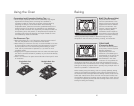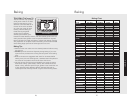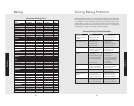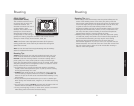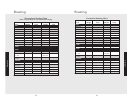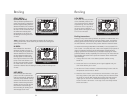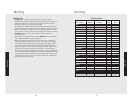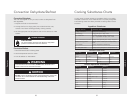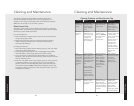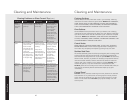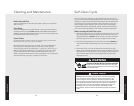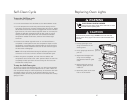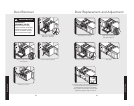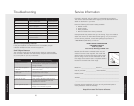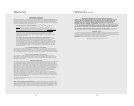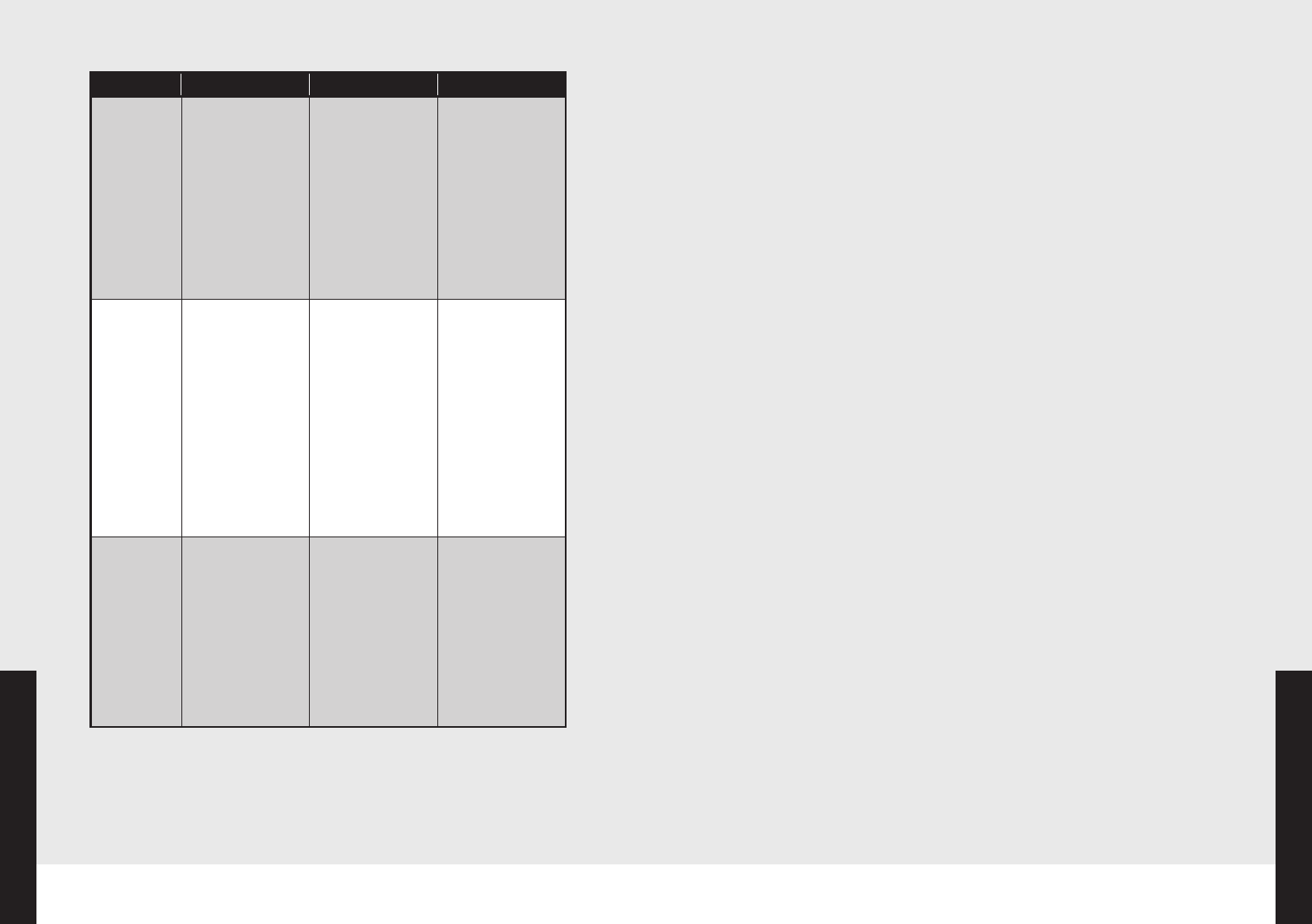
43
Cooktop Surfaces
Several different finishes have been used in your cooktop. Cleaning
instructions for each surface are given below. NEVER USE AMMONIA,
STEEL WOOL PADS OR ANY ABRASIVE CLOTHS AND MATERIALS
SUCH AS CLEANSERS, OVEN CLEANERS, OR ABRASIVE POWDERS.
THEY CAN PERMANENTLY DAMAGE YOUR COOKTOP.
Oven Surfaces
Several different finishes have been used in your electric oven. Cleaning
instructions for each surface are given below. The oven features a self-clean
cycle for the oven interior.
See the “Self-Clean Cycle” section for complete
instructions.
NEVER USE AMMONIA, STEEL WOOL PADS OR ABRASIVE
CLOTHS, CLEANSERS, OVEN CLEANERS, OR ABRASIVE POWDERS. THEY
CAN PERMANENTLY DAMAGE YOUR OVEN.
Control Knobs
MAKE SURE ALL CONTROL KNOBS POINT TO THE “OFF” POSITION
BEFORE REMOVING. Pull the knobs straight off. Wash in detergent and
warm water. Dry completely and replace by pushing firmly onto stem.
Stainless Steel Parts
All stainless steel body parts should be wiped regularly with hot soapy water
at the end of each cooling period and with a liquid cleaner designed for
that material when soapy water will not do the job. DO NOT use steel wool,
abrasive cloths, cleansers, or powders. If necessary, scrape stainless steel to
remove encrusted materials, soak the area with hot towels to loosen the
material, then use a wooden or nylon spatula or scraper. DO NOT use a
metal knife, spatula, or any other metal tool to scrape stainless steel.
DO NOT permit citrus or tomato juice to remain on stainless steel surface, as
citric acid will permanently discolor stainless steel. Wipe up any spills
immediately.
Control Panel
DO NOT use any cleaners containing ammonia, abrasives or stainless
steel cleaners on any surface that contains graphics. These products
could remove the graphics from the control panel. Apply hot, soapy
water to a soft clean cloth. DO NOT spray liquids directly onto the
control panel.
42
Cleaning and Maintenance
Product Care
Problem
Cause To Prevent To Remove
Metal
markings
silver/gray
marks
Sliding or scraping
metal cookware on
glass top.
DO NOT slide
metal objects
across top.
Remove metal
marks before the
glass top is used
again. Apply
cleaning cream
with a damp
paper towel and
scrub with a nylon
scrub pad or
brush. Rinse
thoroughly and
dry.
Hard water
spots
Condensation
from cooking may
cause minerals
found in water
and acids to drip
on glass top and
cause gray
deposits (the spots
are often so thin
they appear to be
in the glass top).
Make sure the
bottom of cook-
ware is dry before
cooking.
Daily use of
cleaning cream
will help keep top
free from hard
water mineral
deposits and food
discoloration.
Mix cleaning
creame with water
and apply a thick
paste to stained
area. Scrub
vigorously. If stain
is not removed,
reapply cleaner
and repeat
process. Also
try cleaning
procedure for
smearing and
streaking.
Pitting or
flaking
Boil over of sugar
syrup on glass top.
This can cause
pitting if not
removed
immediately.
Watch sugar and
syrups carefully to
avoid boilovers.
Turn element to
LO; using several
paper towels to
wipe the spill
immediately. Let
glass top cool and
carefully scrape off
remainder of burn-
off with a single-
edged razor held
at a 30° angle.
Product Care
Cleaning Problems on Glass Ceramic Top (cont.)
Cleaning and Maintenance



